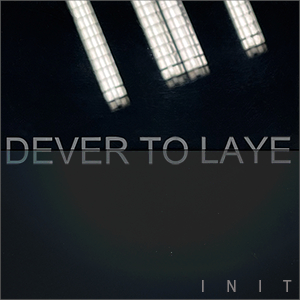Music has been Jacobson’s life work. His history with jazz and electronic music is lengthy, business minded and academic. His desire to refocus left the strongest impact during our conversation. He had the strength of character to admit he wanted independence in an industry that seldom allows it. After an hour’s chat you’re left thinking that this isn’t an artist with typical grandeur airy visions—this is an artist who truly sees the bigger picture. That the art-form we call music is one of the smallest amongst many.
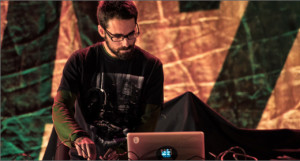 Immediately after our brief introductions you can feel the earthiness about Daniel Jacobson’s persona. He’s artistic, full of musical knowledge and grounded with business sense and operates under the ZoiD moniker. It’s surprising, as most musicians (myself included) often forget about the money side of the coin. Business and finance are usually the shackles seen to contain artistic ventures, and most musicians I’ve spoke with reflect an ignorance to capital. Yet Jacobson has turned this on his head, “See the whole thing is, a lot of musicians, myself included, have anti-business ethos, it’s just the way we grew up thinking ‘music is special and business is evil’, that kind of thing. Were I over the past four to five years have been thinking that business itself is more of an art form. People who are really good at business—Aphex Twin for example—are really good businessmen. In one interview Richard David James (Aphex Twin) described it as “playing a game of chess.” Which he played quite well. He’s got a lot of money now.”
Immediately after our brief introductions you can feel the earthiness about Daniel Jacobson’s persona. He’s artistic, full of musical knowledge and grounded with business sense and operates under the ZoiD moniker. It’s surprising, as most musicians (myself included) often forget about the money side of the coin. Business and finance are usually the shackles seen to contain artistic ventures, and most musicians I’ve spoke with reflect an ignorance to capital. Yet Jacobson has turned this on his head, “See the whole thing is, a lot of musicians, myself included, have anti-business ethos, it’s just the way we grew up thinking ‘music is special and business is evil’, that kind of thing. Were I over the past four to five years have been thinking that business itself is more of an art form. People who are really good at business—Aphex Twin for example—are really good businessmen. In one interview Richard David James (Aphex Twin) described it as “playing a game of chess.” Which he played quite well. He’s got a lot of money now.”
Jacobson has a history with musical business ventures. He’s the founder and former co-director of Irish jazz-electronic label Diatribe Records and runs his own school, Tronix Academy. Diatribe Records is a landmark for Irish experimental music. Currently Diatribe have fifteen artists on their roster, all of considerable profile across Ireland. The label has had notable press in the Irish Times and Culture Ireland. Best of all, Diatribe’s projects have been consistently backed by the Arts Council of Ireland. The label was a start-up venture, an effort by him and a close friend that eventually blossomed into a hub for Irish electro along with the backing of the council. So what sparked Jacobson’s departure in 2013?
“I wanted to refocus, and you can’t really focus on a label when your interests musically are somewhere else. You need to be into every release.” Financial reasons played their part too. “There was also a thing about how Diatribe runs financially, exclusively through Arts Council funding. It’s just the way the jazz scene and the contemporary classical scene works. It’s not commercial music and doesn’t look like it ever will be. Operating like that, just rubbed the wrong way with me. I’d rather be smaller, and provide an audience rather than getting money from the Arts Council and putting out a record regardless if anyone’s going to listen to it.” (click here for full article).
Jacobson was never drawn into whether or not obtaining funding like this was a bad thing, but only described it as ‘contentious’. “It’s how artists are getting their projects recorded and playing and getting gigs. [For me] it’s just a massive change in thinking really. I didn’t get that much personal satisfaction from working on projects which were funded by the Arts Council. I wanted to completely change it round so I could be independent”.
That independence has grown into running his own electronic music academy, known as Tronix Academy. They’re running courses specifically for electronic musicians and producers. The academy’s production masterclasses have been of particular note, with guest producers such as Objekt, Eomac and DeFeKT having made guest appearances. Naturally Jacobson was very upbeat about it, “I’ve since started running courses for electronic musicians. It’s great. It’s gone really well.”
ZoiD has been Jacobson’s main creative output. It’s his artistic persona and what a persona it is. ZoiD’s sound can be so richly detailed, zany, and minimal all within the same track. There are moments of densely sonic detail alongside the space of minimalism to balance out the madness. It’s complex stuff. At times, to pardon the cliché, it’s breathtaking stuff—like peering up to a clear night sky and watching the stars dissolve in front of your eyes.
“There was a class that always stuck with me from when I was studying Music Technology on John Cage’s Sonatas & Interludes. The structure of Cage’s Sonatas & Interludes is all fractals, and the whole thing is done in these proportions, with each of the pieces… each of the sonatas having a proportion. It’s a super advanced structure. It was always beautiful to me. I tried loads of times to do something like that, but it always came out far too complex—you couldn’t follow it at all.”
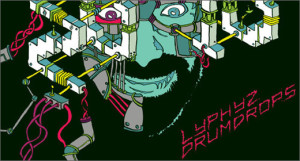 ZoiD has been evolving into something much more minimal, with greater accessibility and clubbish appeal. “The past year I’ve spent a lot of time trying to create a lot of 4/4 techno and electro. I was focused on trying to make the records sound good as opposed to just producing something. I was trying to focus in on a sound, something which is definitely club orientated. The most exciting music for me over the past couple of years has been club music.” Certainly, a vast departure from ZoiD’s experimental roots.
ZoiD has been evolving into something much more minimal, with greater accessibility and clubbish appeal. “The past year I’ve spent a lot of time trying to create a lot of 4/4 techno and electro. I was focused on trying to make the records sound good as opposed to just producing something. I was trying to focus in on a sound, something which is definitely club orientated. The most exciting music for me over the past couple of years has been club music.” Certainly, a vast departure from ZoiD’s experimental roots.
Another signal in ZoiD’s simplification is the live set up. He’s free of many gadgets and acoustic instruments when performing live, preferring to DJ from Ableton and surround himself by live performers.
ZoiD’s music has always been about putting technicalities first, ahead of connecting with the listeners emotions, though that seems to be changing. I came to wonder how Jacobson’s jazz background influenced his creative process—was there ever an urge to create something complex for the sake of it? “That’s a really good point actually. In music I’m searching for… I don’t know. Jazz training’s what I blame. I think in any arts school there’s a focus on being the most original and the most inventive, and you have to be different from everyone else, but you end up just going far down a really extreme path. That’s what happened to my music before. It’s quite extreme, in terms of everything.”
Music has been Jacobson’s life work. His history with jazz and electronic music is lengthy, business minded and academic. His desire to refocus left the strongest impact during our conversation. He had the strength of character to admit he wanted independence in an industry that seldom allows it. After an hour’s chat you’re left thinking that this isn’t an artist with typical grandeur airy visions—this is an artist who truly sees the bigger picture. That the art-form we call music is one of the smallest amongst many.
In closing Daniel sent an email, letting me know about unreleased material he made in 1998. It serves to highlight how much Aphex Twin have influenced his creative output.“I found this digital audio tape in my parents house with seven tracks on it from around 1998. When I listened to it [recently] I was very happy—blown away actually. I never thought at the time the tracks were any good… but listening back now it sounds like early Aphex Twin, Caustic Window stuff… too much like it (I mean it’s not that original). It’s kind of a tribute to Aphex Twin. But production wise I would love to get that sound now!”
Download Jacobson’s 1998 demo free of charge.
For more about ZoiD, visit his website at zoid.de.






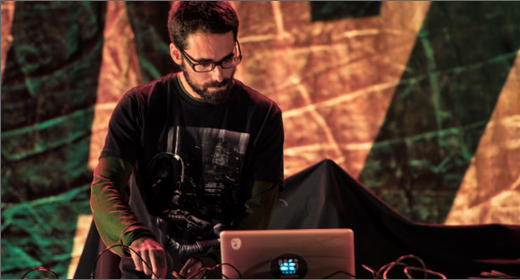
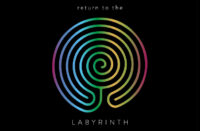


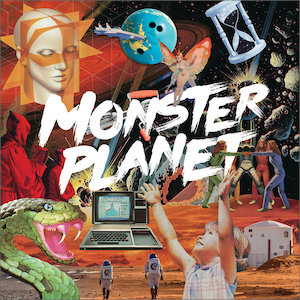
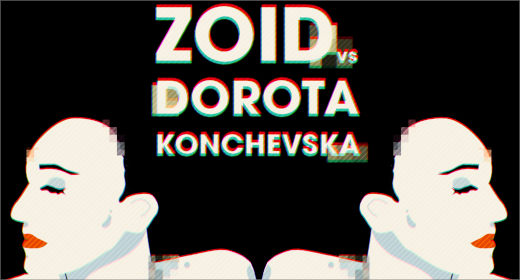
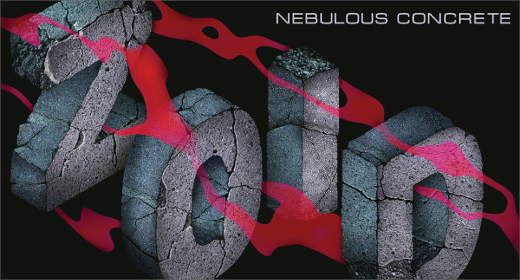
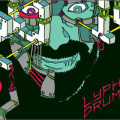
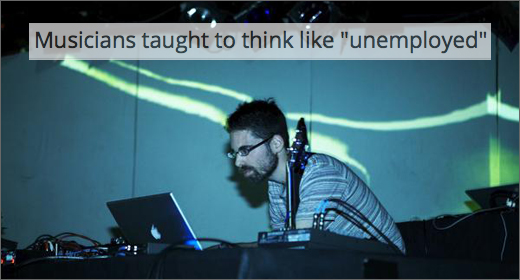

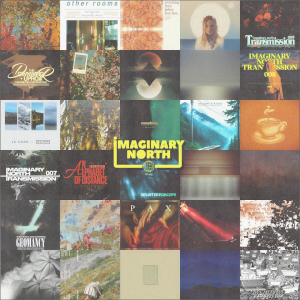


![Hasbeen :: Bunker Symphonies II (Clean Error) — [concise]](https://igloomag.com/wp/wp-content/uploads/2025/04/hasbeen-bunker-symphonies-ii_feat-75x75.jpg)
![Extrawelt :: AE-13 (Adepta Editions) — [concise]](https://igloomag.com/wp/wp-content/uploads/2025/04/extrawelt-ae-13_v_feat-75x75.jpg)
![Beyond the Black Hole :: Protonic Flux EP (Nebleena) — [concise]](https://igloomag.com/wp/wp-content/uploads/2025/04/beyond-the-black-hole-protonic-flux_feat-75x75.jpg)
![H. Ruine, Mikhail Kireev :: Imagined / Awakenings (Mestnost) — [concise]](https://igloomag.com/wp/wp-content/uploads/2025/04/h-ruine-mikhail-kireev-imagined-awakenings_feat2-75x75.jpg)


![Squaric :: 808 [Remixes] (Diffuse Reality) — [concise]](https://igloomag.com/wp/wp-content/uploads/2025/04/squaric-808-remixes_feat-75x75.jpg)
